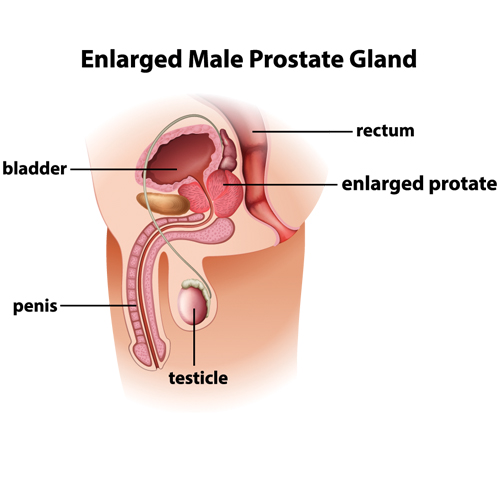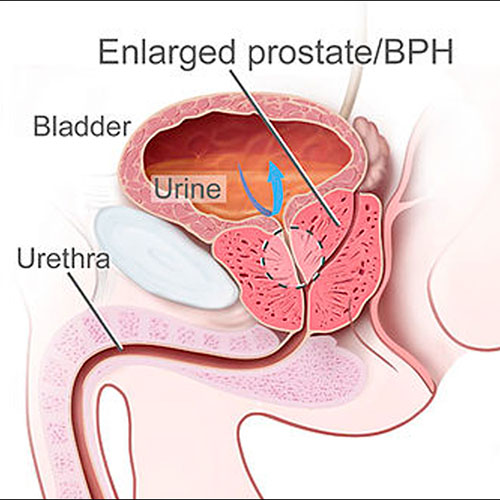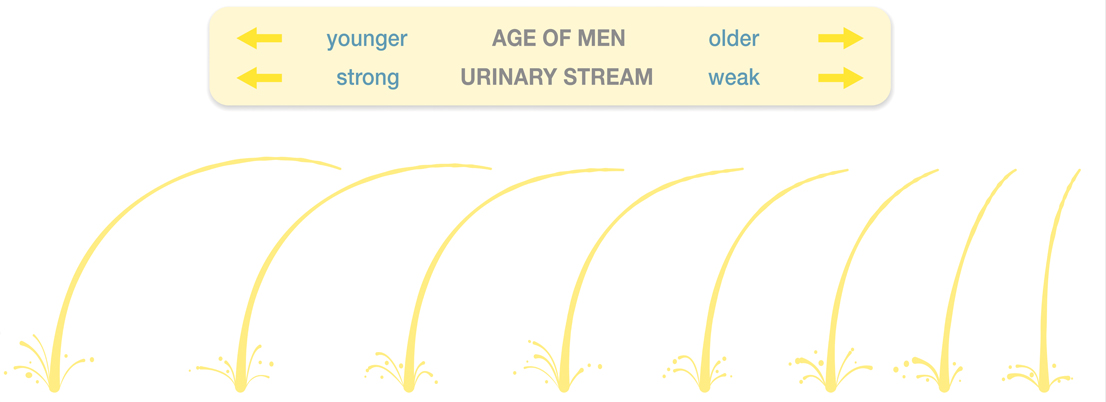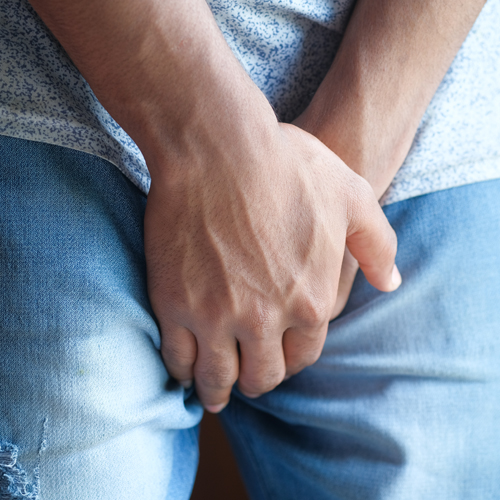The size of the prostate increases as men age, with two main growth periods. The prostate doubles in size during early puberty then goes through another growth when a male is around 25 years old.
What is a benign prostatic hyperplasia condition?
A benign condition refers to the enlargement of the prostate gland. This is very common among older men, affecting 1 in every 2 men in their 50a, and the majority of men in the 70s and 80s. The prostate gland forms a ring around the urethra, and an enlargement of the gland can cause compression that leads to difficulty with urination.
Symptoms of benign prostatic hyperplasia (BPH) may vary from patient to patient, and can include one or more of the following:
- Slow urinary flow
- Intermittent urinary flow
- Urinary frequency
- Sense of incomplete bladder emptying
- Urinary urgency
- Urinary incontinence (leakage of urine)
- Difficulty starting urination (urinary hesitancy)
- Nocturia (night time urinary frequency interrupting sleep)
When left untreated, BPH can lead to bladder dysfunction, recurrent urinary tract infections, and even obstruction of the kidneys that could lead to subsequent kidney failure.
What are the risk factors associated with benign prostatic hyperplasia?
Benign prostatic hyperplasia is a natural consequence of aging and is more likely to occur in men whose fathers or brothers experienced prostate enlargement. However, it may occur in nearly all men over time, as long as they have testes. About 50% of men who are 50 have evidence of microscopic enlargement of the prostate gland, and at least 30% of men require treatment by the time they reach 70 years of age.
Obstructive Symptoms
- When the urethra is obstructed, it is often difficult to start urinating despite the urge. Men strain or bear down, as if attempting to have a bowel movement, to start their urinary stream.
- Flow of urine may be slow or diminished and urination may be characterized by a repeated start-stop pattern that requires additional straining.
Irritative Symptoms
- Frequency – Due to changes in the bladder wall, as well as incomplete emptying of the bladder, needs to urinate frequently.
- Nocturia – Night time frequency, this symptom describes the inability to sleep through the night without having to get up to urinate.
- Urgency – The sudden, intense and sometimes uncontrollable urge to urinate that results from having a hypersensitive bladder.
Surgery
Surgery for benign prostatic hyperplasia is not always necessary. However, surgery is the best option when you experience the following:
- A partial blockage in your urethra that is causing repeated urinary tract infections, bladder stones, or bladder damage.
- Blood in your urine that is not getting better and is causing other problems such as clots that make it hard to urinate.
- Kidney damage.
If you have no complications but have symptoms that bother you or if other treatment has not worked, you may choose to have surgery.
Surgery that does not require an incision through the skin is usually used. The surgical instruments are passed up the urinary opening in the penis to the location of the prostate. This is described as a transurethral surgery of the prostate.
The oldest surgical method to treat BPH is an open prostatectomy, in which an incision is made through the skin to reach the prostate. Doctors use this method less often now, but it is still preferred if the prostate is very large.
Frequently Asked Questions with regards to benign prostatic hyperplasia
-
When does benign prostatic hyperplasia typically occur?
-
Who is more at risk of developing benign prostatic hyperplasia?
- Men who are 40 years old or over
- Men with a family history of benign prostatic hyperplasia
- Men who have been diagnosed with obesity, heart and circulatory disease, type 2 diabetes
- Men who lack physical activity
- Men with erectile dysfunction
-
What are the symptoms associated with benign prostatic hyperplasia?
- Frequent urination (eight or more times per day)
- Urgent urination (inability to delay urination)
- Difficulty starting a urine stream
- Dribbling at the end of urination
- Nocturia (frequent urination during sleep)
- Urinary incontinence (accidental loss of urine)
- Pain after ejaculation or during urination
- Unusual colour or smell in urine
-
What causes benign prostatic hyperplasia?
The cause of benign prostatic hyperplasia is not fully understood. However, it is evident that the condition affects mainly older men.






